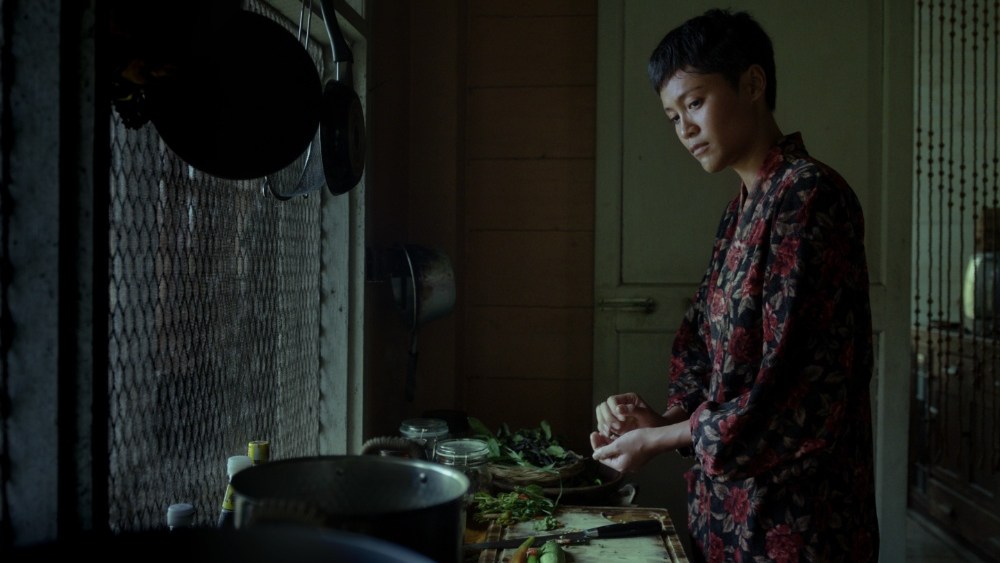According to the production team behind the Tokyo International Film Festival’s competition title “Morte Cucina,” film co-production in Asia remains complex, with major cash flow financing challenges in particular.
The five-country co-production team, including Thailand, Singapore, Taiwan, France and Luxembourg, discussed the challenges of balancing film funding requirements from each country at a seminar at TIFFCOM, the festival’s market arm.
The complex structure required producers to divide creative and technical roles based on each country’s contribution.
For example, Singapore’s IMDA has changed its funding model to prioritize work experience for locals, requiring production companies to hire 10 Singaporean “media talents” (IMDA’s term for a select list of top and bottom line staff).
For “Morte Cucina,” lead cast members, first assistant camera operators, wardrobe and camera grips traveled to Thailand for filming.
Sound mixing was done in Luxembourg, while VFX, Foley, and color grading were done in Taiwan.
Director Penek Rattananaruan explained how he worked with producer Soros Sukum to address these changing demands while prioritizing the film’s vision.
“I say to Soros, ‘I only have to have a few (key staff elements), and I don’t care about the rest,’ so Soros can be more creative in producing,” Ratanaruan said. “As a coach, I only ask for a few things, but the few things I asked for, you don’t move. They have to stay, and the rest is up to you.”
He cited his collaboration with cinematographer Christopher Doyle as an example of how trusting key staff elements made post-production easier.
“I know how he works, I know how he lights. Every scene is very consistent, and color correction is easy. So, I don’t know about Taiwanese color grading, but I would say it’s okay to go to Taiwan and do it.”
But beyond these operational issues, Asian co-production companies also face structural hurdles in raising capital.
Even in the case of “Morte Cucina”, which has a commitment from the Film Fund and a minimum guarantee from French distributor The Jokers, Asian co-production companies are struggling with a lack of options to mobilize production funds.
“What Asia really lacks is things like cash flow facilities. Compared to Europe or America, banks don’t lend (for film production) in this region,” said seminar moderator Lorna Tee, founder and producer of Mylab.
“A lot of producers struggle with this when they want to do international co-productions, because many of the ways in which funding is disbursed are very complicated and don’t work according to the needs of the producer,” Tee said.
“Morte Cucina” producer Soros Skum agreed, pointing out the unconventional methods they employed to cash flow their $1.3 million production budget.
“We take loans not from banks, but from wealthy individuals, and we give them credit,” Sukum said. “And we will give investors (in the film) a premium if they send in the full amount (in advance). Once everyone collects, we will give them a 5% premium.”
Producers also have to deal with frequent and unpredictable changes in national film organizations’ policies and leadership, which can complicate long-term planning.
“In Europe, the networks between countries are very strong and all the co-producers know the rules of each country very well. In Asia, on the other hand, the rules change a lot every time,” co-producer Stefano Centini said.
“And this is another thing that’s always difficult to explain to the other co-producers: No, actually, what was true yesterday is no longer true today.”
Further complicating matters within Asia, film organizations in each country are often exposed to changes in their respective countries’ politics, with leadership often changing hands in response to votes at the ballot box.
One aspect that is easier in Asia compared to Europe is that agencies have more flexibility in terms of the percentage of investment required to qualify as an official co-production.
“In Asia, the regulations are a little more relaxed, so Share, for example, is allowed to participate in a little bit of co-production,” Centini said. “In this case, Taiwan is less than 10%, and I don’t think it would be recognized as an official co-production in Italy, but I am still able to participate, because in Asia we don’t have this very close structure.”

